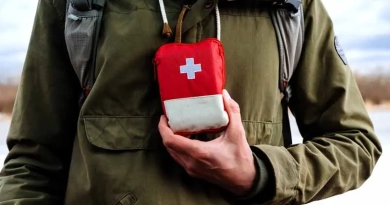
Unveiling The Layers: Are You A Prepper Or A Survivalist?
In the constantly shifting sands of our modern world, one question often surfaces with an air of curiosity and sometimes, urgency: “Are you a prepper or a survivalist?” This query, though simple, touches on a deeper dialogue about preparedness, resilience, and the very nature of survival in today’s society.
At its core, a prepper is someone who prepares—plain and simple. This broad definition encompasses a vast array of individuals, from homesteaders tilling their land for self-sufficiency to urban dwellers with a basic evacuation plan and a smoke alarm in their apartment. It’s about being ready, whatever your environment or belief system may be.
Then we have survivalists, who are, in every sense, preppers too; but not all preppers are survivalists. While preppers range in their approaches and intensity, survivalists often take this preparedness to another level, focusing on sustaining life through potentially severe adversities, be they natural disasters or other catastrophic events.
Breaking Down the Misconceptions
The question of whether one is a prepper or a survivalist can sometimes feel as absurd as asking, “Is that a Humvee or is it a vehicle?” Clearly, a Humvee is a vehicle, but not all vehicles are Humvees. Similarly, while all survivalists are indeed preppers, the reverse is not necessarily true. The spectrum of preparedness is broad, including those who simply install smoke alarms to those who might prepare for a societal collapse.
Media portrayal often skews towards the sensational—Doomsday Preppers preparing for the apocalypse is a concept well-ingrained in popular culture. Yet, this narrow view overlooks the everyday reality of most preppers. The comparison with Ice Road Truckers is apt—just as not all truckers navigate icy roads, not all preppers are gearing up for doomsday scenarios.
Government Perspectives and Societal Implications
The government’s stance on preparedness can sometimes seem dichotomous. On one hand, agencies like FEMA encourage Americans to maintain a 72-hour emergency kit, as seen on Ready.gov. On the other hand, certain departments might view the more extreme elements of preparedness with suspicion, reflecting broader concerns about extremism. This divide-and-conquer strategy reveals deeper societal tensions around self-reliance and government dependence.
The Cultural Fabric of Prepping
Preparedness transcends political and cultural boundaries, creating unlikely alliances and communities. It’s a movement that defies simple categorization. From forums discussing the latest AR-15 accessories to blogs dedicated to sustainable gardening and peak oil, the prepping community is diverse. This convergence of interests highlights a broader trend towards self-sufficiency and resilience that cuts across traditional societal divides.
You Might Be a Prepper Too
Many may not identify with the label “prepper,” yet in practice, they embody the essence of preparedness. Whether it’s wearing a seatbelt, owning insurance, or keeping a firearm for self-defense, these actions are forms of preparation. The realization often dawns slowly: embracing these practical measures, no matter how small, is a step towards joining a vast, varied group of individuals who prioritize readiness in their daily lives.
Welcoming All to the Fold
The community of preppers is as diverse as humanity itself, encompassing a wide range of ideologies, backgrounds, and practices. It is a community that welcomes all who value preparedness, from the minimal to the extensive. As we navigate the complexities of modern life, the lines between ordinary precaution and prepping blur, suggesting that, perhaps, we are all preppers in some form, united in our pursuit of safety and stability.
Conclusion: A Call for Inclusivity and Understanding
The distinctions between prepper and survivalist are more than semantic—they are reflections of personal philosophy and lifestyle choices. As the world grows increasingly unpredictable, the dialogue around preparedness becomes more relevant. It is not just about surviving; it is about thriving in the face of whatever challenges may come our way.






